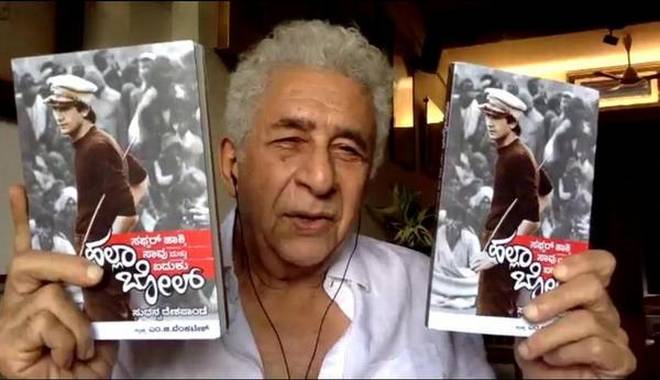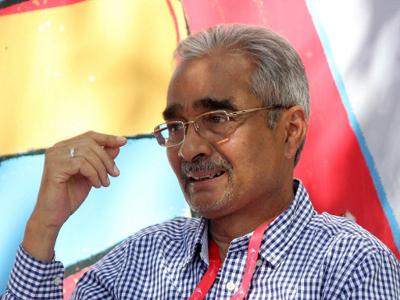NEW DELHI :

Actors and authors call for solidarity with activist and intellectuals
Veteran actor Naseeruddin Shah called for people to fight for their right to democratic dissent, which, he said, is increasingly being interpreted as sedition at a time when history is being replaced by mythology. He was speaking at the virtual release of Halla Bol: Safdar Hashmi Savu Mattu Baduku, a Kannada translation of Sudhanva Deshpande’s book on the playwright and director Safdar Hashmi. The book has been translated to Kannada by M.G. Venkatesh.
Safdar Hashmi was fatally injured in an attack on the theatre group when Halla Bol, a street play on exploitation and rights of factory workers, was being performed near Delhi in January 1989.
At the book launch, Mr. Shah said that the life, achievements and murder of Safdar Hashmi was a testimony as to why fascist powers and forces were so terrified about the lives of activists and intellectuals, who are being hounded in the country today. “It is high time we stand in solidarity with jailed activists and intellectuals like Varavara Rao and Anand Teltumbde,” he said.
“When I read the English and Hindi versions of Halla Bol, I was informed, amused, raged, disturbed and moved. He [Safdar Hashmi] took plays to factories, schools and streets, and informed people about their exploitation and rights. It is from his life I realised that even an actor’s life can be of use and impactful,” he added.
M.G. Venkatesh, translator of the book, said that the thoughts and writings of Safdar Hashmi are more relevant now than at the time he was killed. “The current regime is diluting labour laws, not only in a dangerous way but also in a way that insults labourers,” he added.
Author Sudhanva Deshpande spoke about the assassination of editor-activist Gauri Lankesh. “The killing of Hashmi stirred the need for the defence of freedom of art and expression,” he said.
Actor Achyuth Kumar said that the times had not changed much. “Hashmi was killed when the Congress was in power, and Gauri Lankesh was killed by the fundamental right wing. This is the way ruling dispensations suppress the voices of people. They just kill them,” he said.
Writer Bolwar Mahammad Kunhi said that we are fighting two types of viruses now. “It is said that a vaccine for COVID-19 will be available in the future. But who will and how can a vaccine be invented for those who suppress dissent, spread hatred and eulogise killings and violence?”
source: http://www.thehindu.com / The Hindu / Home> News> Cities> Bengaluru / by Staff Reporter / October 31st, 2020









